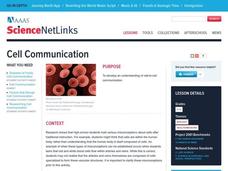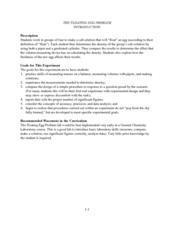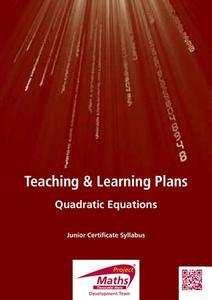PHET
Mapping the Field of Multiple Dipole Magnets
So you built a magnetometer, now what? High school scientists use their magnetometer made in a previous lesson to map the union of magnetic fields of dipole magnets. They experiment with different alignments and draw conclusions about...
Center for Civic Education
The Power of Nonviolence: What Is Nonviolence? What Does It Cost?
Your young learners will delve into the language of primary source documents in order to identify the characteristics, benefits, and costs of nonviolence. The lesson includes a mix of activities, including an anticipatory activity,...
US Institute of Peace
Organizations Working for Peace
From helping refugees to negotiating peace treaties, the peacekeepers of the world keep busy! Introduce young activists to the many individuals and organizations throughout the world that work daily toward peace. 14th in a series of 15...
Virginia Department of Education
Biotechnological Issues and Bioethics
Culminate a bioethics unit with the implementation of a lesson that incorporates the Socratic method to encourage class feedback and participation. Pupils participate in a discussion on bioethics and morality, complete a...
Trinity University
Explain Yourself: An Expository Writing Unit for High School
Introduce expository writing with a unit that asks writers to craft an essay to explain a belief, value, or priority that is important to them. Mini-lessons within the unit focus on crafting thesis statements and conclusions, selecting...
Howard Hughes Medical Institute
Using Genetic Crosses to Analyze a Stickleback Trait
Two fish appear different, but how do scientists determine their genotypes? Scholars practice performing test crosses to determine the genotypes of fish given their phenotypes. They answer in-depth comprehension questions and complete...
Bright Hub Education
Don Quixote
The ideas present for analyzing Don Q are tried and true, and the beginner to the novel will find the information helpful. The most productive activity on this resource would be the mind map (link available) that gives readers and...
Curated OER
Poetry From Photos: A Great Depression Activity
Young scholars view photographs of migrant families during the Great Depression, try to interpret the photos to answer questions about the subject's life, and then write a Cinquain poem based on their interpretations.
Curated OER
Discovering Pi/Welcome to Pi Day
Students explore pi. In this circle measurement lesson, students define and identify radius, diameter, circumference, and perimeter. Students work in groups to measure several plastic lids and record their findings. Students compare the...
Curated OER
Cell Communication
Students clarify common misconceptions about cells. They assess initial knowledge of cells and cell behavior, read and discuss an article and consider the role of cell communication in the diseases of diabetes, multiple sclerosis and...
Curated OER
Health Conscious?
What is your attitude on health and illness? By considering their own experiences, students will reflect on and discuss their attitudes toward health and illness while educating each other by researching illnesses in small groups,...
Curated OER
In God We Trust; All Others Pay Cash
Learners review their knowledge on the First Amendment. After reading an article, they identify specific church and state issues. Using the Internet, they research President Bush's proposal from a specific point of view. They summarize...
Curated OER
Fossil Fuels (Part III), The Geology of Coal
Do not overlook this set of lessons just because your school does not have a data analysis system. There is plenty of material here to administer a complete mini unit on the formation, distribution, and properties of coal. Since it...
Curated OER
The Floating Egg Problem
This is the grown-up version of the classic "float an egg in salt water" experience, plus an experiment in soap making. High schoolers explore density, but more importantly, practice accuracy, precision, and the use of significant...
Curated OER
The Source of Knowledge
Young scholars explore their impressions of several countries and the sources of information that informed those impressions. They examine the changing attitudes of South Koreans toward North Korean by reading and discussing "New Craze...
Curated OER
Vocabulary Strategy Instructional Routine: Maus I and II
Pogrom, schlepped, meshuga. Kapo, reich, Wehrmacht. As part of a unit study of Maus I and II, readers use a list-group-label (LGL) strategy for vocabulary drawn from Art Spiegelman's famous graphic novels. The focus of the activity is...
Curated OER
KWHL Questioning Strategy for Briar Rose
Whether new to the KWHL strategy or not readers of Briar Rose will benefit from the detailed procedures and templates designed for Jane Yolen’s novel. Links are provided for research into the Holocaust and activities reveal the many...
Project Maths
Introduction to Quadratics
Develop conceptual knowledge of a quadratic equation and its solutions in your classes. The third algebra lesson in a series of four introduces learners to solving quadratic equations slowly. The first activity explores the zero product...
Curated OER
World Geography: Smart Cities
Students are able to analyze how a variety of cities both in the USA and abroad have worked to improve human health and environment. They combine their prior knowledge of previous lessons and apply that knowledge to compare how each...
Curated OER
The Aging Brain: A Lesson on Alzheimer's Disease
Students investigate the aging brain and its relationship to the occurrence of Alzheimer's disease. They need to have prior knowledge of brain and nervous system anatomy in order to participate in this instructional activity. Students...
Curated OER
Plant Classification
High schoolers share with the class how they think plants are classified and are assessed on their prior knowledge. They use a packet to complete throughout the week at their own pace, which includes various activities to familiarize...
Curated OER
Understanding the Indoor Environment: The Movement of Air
Students discuss HVAC to assess prior knowledge. Students create a rubric to assess their modals of HVAC units, and build the models according to instructions and discussion by the teacher.
Polar Trec
Swan Savvy
Just like so many other birds, swans migrate during the cold winter months. Your class can gain a better understanding of migration and bird life as they act out some of the activities common to the tundra swan. They make a nest, sit on...
Cornell University
Predicting Chemical Reactions
Prove the Law of Conservation of Mass through a lab investigation. A well-designed lesson asks groups to combine materials and monitor indicators for chemical reactions. Measuring the mass of the reactants and products allows individuals...























